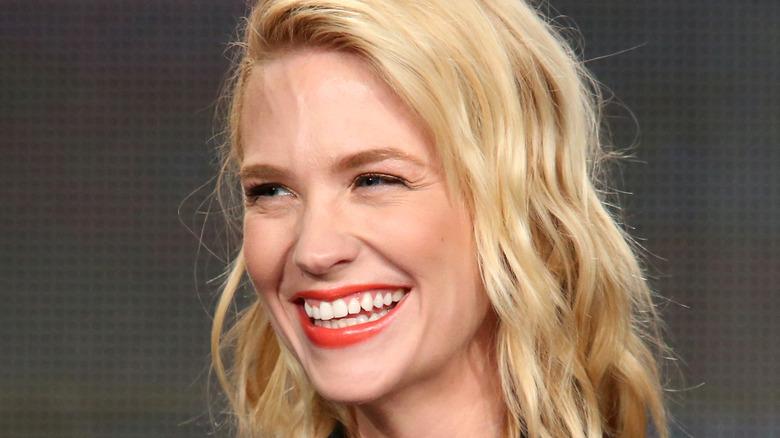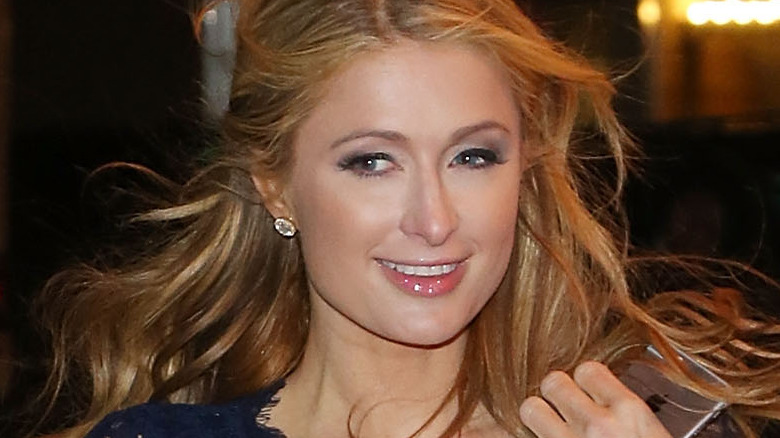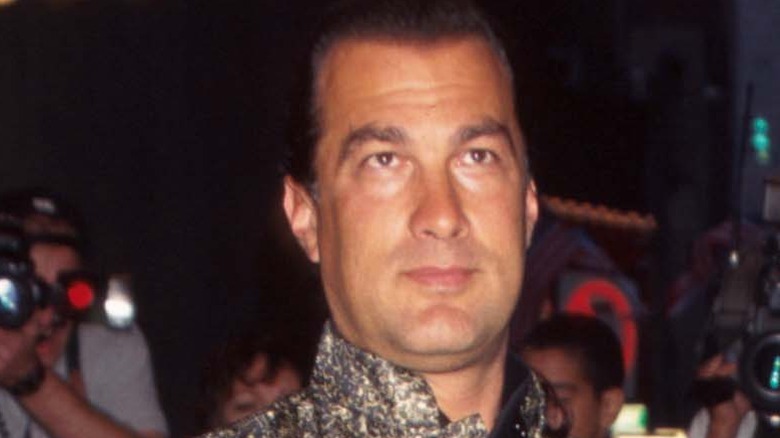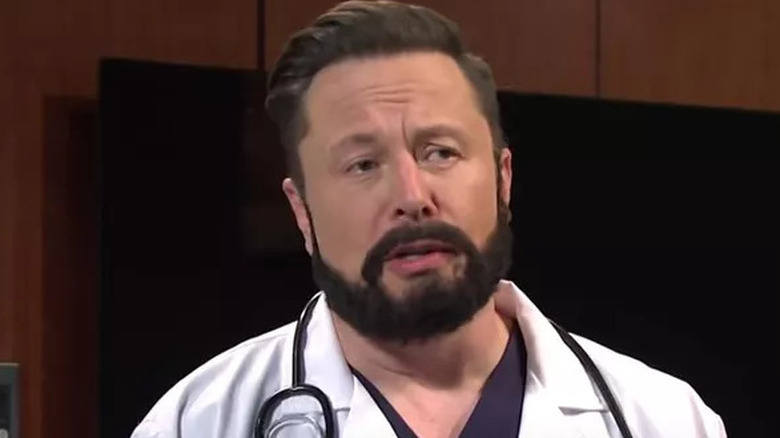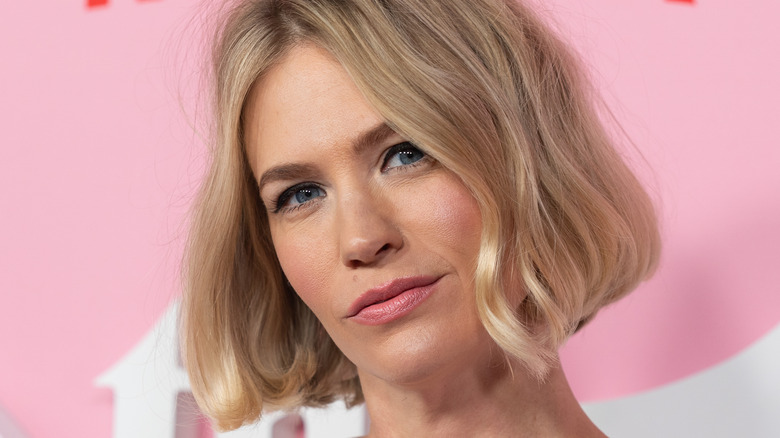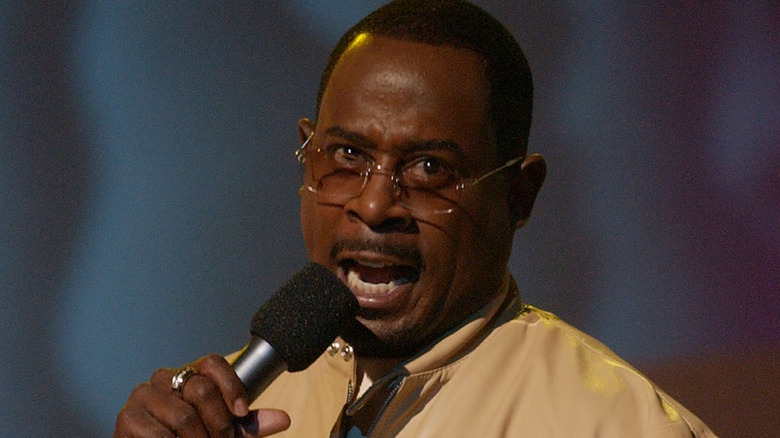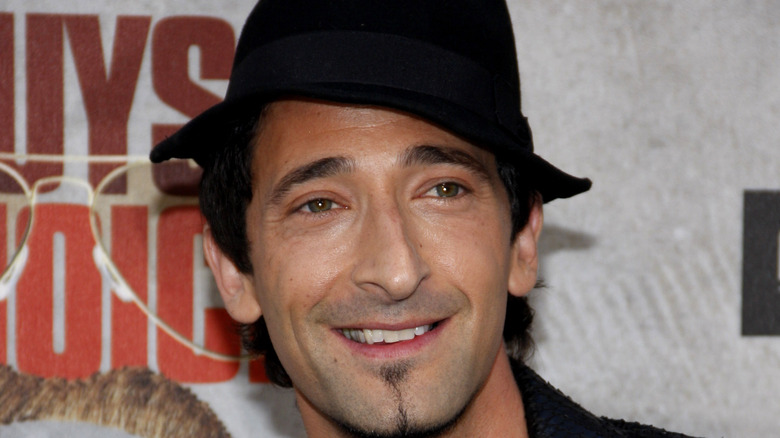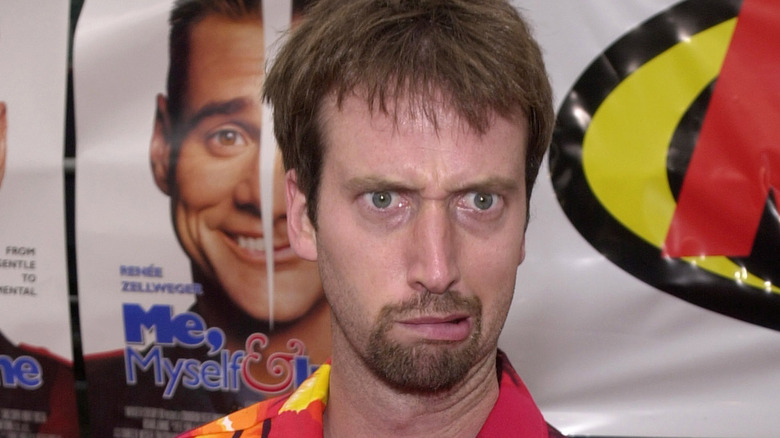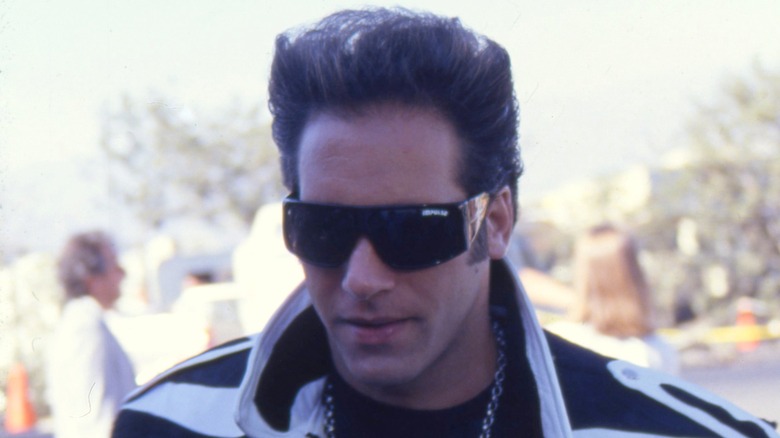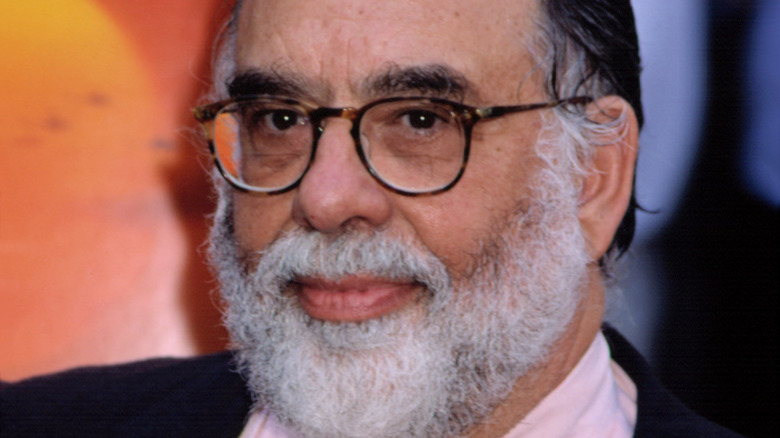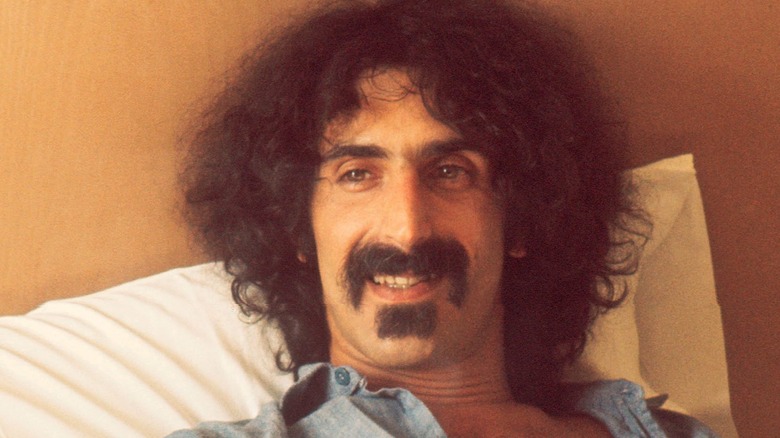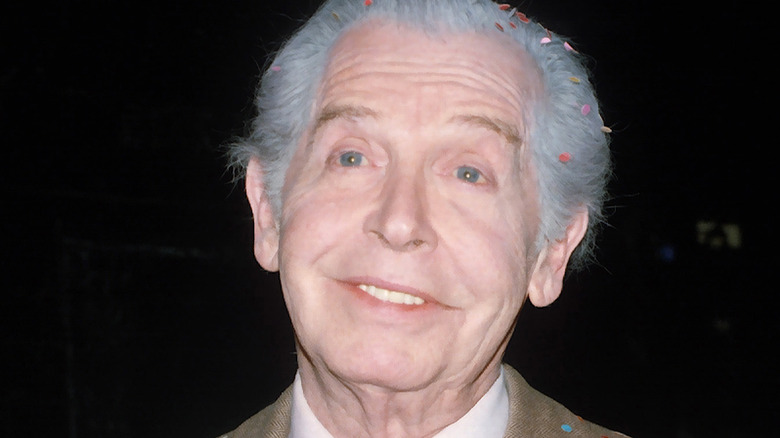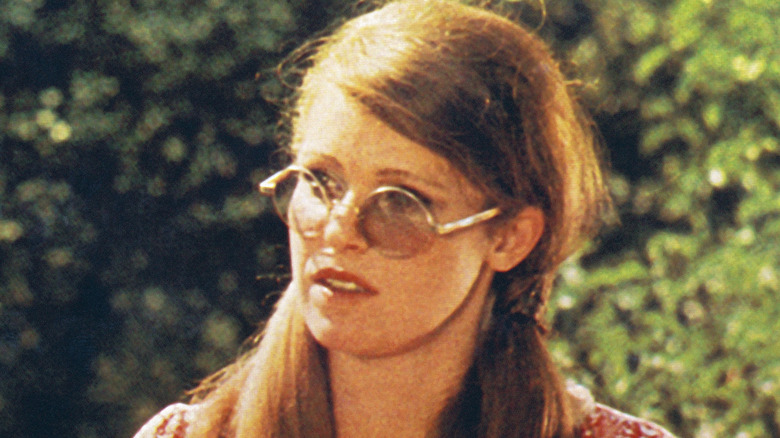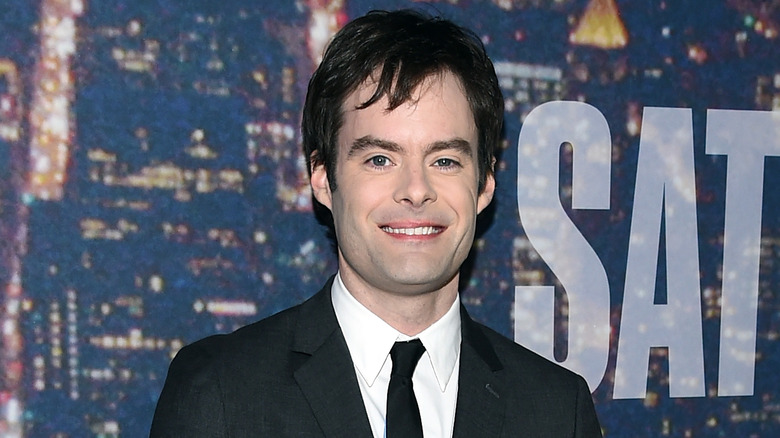SNL Hosts Who Bombed Big Time
Getting asked to host "Saturday Night Live" is an honor and a rite of passage. But taking a week out of one's busy, famous person life to help put together 90 minutes of sketch comedy for millions of people, for live television, which will be scrutinized by the media and viewers alike for at least the next few days, isn't easy. Even for a veteran actor, doing live comedy bits is a particular and difficult beast, and there are really only two long-term outcomes from hosting "Saturday Night Live" — the host does so well that they get invited back to go through the whole pleasant ordeal all over again (and then maybe more times, until they're a member of "The Five-Timers Club" with the likes of Tom Hanks and Melissa McCarthy) or their face never graces the "SNL" stage and offices at Rockefeller Center ever again.
A lot can go wrong in an episode of "Saturday Night Live," or in the run-up to broadcasting an episode of "Saturday Night Live." And for a handful of celebrities, things could not have gone worse. Here are the most disastrous and poorly-received guest hosts across the long history of "SNL."
Paris Hilton made some enemies at SNL
Few shows inspire as many amateur and hot takes from viewers as much as "Saturday Night Live" does. Every episode has its share of funny moments and misfires alike, but rarely is one episode so poorly received that it earns bad marks across the board from a wide swath of fans. According to user scores on the Internet Movie Database, the lowest-rated, and thus least popular and most hated episode of "Saturday Night Live" of all time (with a 3.5 out of a possible 10) is the February 2005 installment hosted by reality show star, hotel heiress, and general purpose celebrity Paris Hilton.
Publicly presenting herself as an entitled, spoiled diva-princess had already made Hilton a polarizing figure, but that attitude is apparently not for show, and one that also rubbed "SNL" writers and cast members the wrong way. On Howard Stern's satellite radio show in 2006 (via Gawker), Tina Fey bluntly labeled Hilton a "piece of s***" who "embraces her stupidity." Fey also said Hilton pitched a sketch idea (which was not used) in which she could portray Jessica Simpson, because she didn't like the singer and because "she's fat." Another gemstone plucked from Fey's chat with Stern? She so hated the week she spent writing comedy for Hilton that she criticized the size of her hands and claimed she left "nasty wads of Barbie hair on the floor" that fell out of her "cheap weave."
A strong candidate for worst host in SNL history
Never mind what the critics think or what the ratings say — perhaps the most disastrous hosts in "Saturday Night Live" history are the ones that the show's performers say are the worst they ever had to endure. Several people from early '90s "SNL" all agree that the show's least enjoyable host was April 1991 guest Steven Seagal, at the time a wildly popular star of blockbuster action movies like "Hard to Kill" and "Marked for Death." "He would complain about jokes that he didn't get," Tim Meadows said in "Live from New York: The Complete Uncensored History of 'Saturday Night Live.'" "He just wasn't funny and he was very critical of the cast and the writing staff. He didn't realize that you can't tell somebody they're stupid on Wednesday and expect them to continue writing for you on Saturday." Julia Sweeney recalled Seagal's "hilariously awful" sketch pitches, including one where he'd play a therapist who'd try to have sex with a sexual assault victim portrayed by Victoria Jackson. According to David Spade, there was even backstage talk midweek about getting rid of Seagal altogether and "just doing a cast show."
"SNL" later called out Seagal on the air. When Nicolas Cage hosted in 1992, he appeared in a sketch with Lorne Michaels and expressed anxiety over being "the biggest jerk who's ever been on the show." "No, no, that would be Steven Seagal," Michaels quipped.
Elon Musk's stint was less than electric
When a non-performer hosts "SNL," such as an athlete or politician, audiences can almost expect a mediocre episode. Expectations may not have been high when the news broke that SpaceX and Tesla Motors billionaire Elon Musk would host an episode of "SNL" in May 2021. Musk wasn't a particularly well-liked public figure at the time — he'd been in the news for spreading COVID-19-related misinformation and attempting to stop his employees from unionizing. As The Wrap noted, even "SNL" cast members voiced their displeasure. Aidy Bryant tweeted a Bernie Sanders quote about the "moral obscenity" of the wealth of billionaires, while Bowen Yang's Instagram Story dispatched a screencap of Musk's tweet "Let's find out just how live 'Saturday Night Live' really is" with the caption, "what the f*** does this even mean." A source close to the show told Page Six that "SNL" producer Lorne Michaels wouldn't make his actors appear in sketches with Musk if they didn't want to, which, from the sound of the ideas Musk floated on Twitter, didn't seem great.
Ratings spiked for the episode, but there were two controversial moments. After joking in "Weekend Update" that Dogecoin was "a hustle," the value of Musk's advocated cryptocurrency dropped by 22 percent. And the soap parody "Gen Z Hospital," which on the surface seemed to consist entirely of young people spewing neologisms for four minutes, earned backlash on Twitter for likening African American Vernacular English to vapid hipster slang.
Critics didn't drape January Jones with praise
The cool, sophisticated, compelling '60s-set "Mad Men" was at its Emmy-winning peak in late 2009, and seeing as how star Jon Hamm had already hosted "Saturday Night Live" to acclaim a year prior, the show brought in cast member January Jones. Now, Jones is a solid comic performer, memorably co-starring in funny stuff like "Anger Management," "Love Actually," and "The Last Man on Earth." However, she didn't thrill TV reviewers with her sketch comedy work on "SNL." In fact, Jones — and her episode — earned some of the most savage feedback the show had ever faced.
"One of the more stale installments of the venerable program in years," said a critic from Vulture, who singled out Jones for being "dull." That publication also took Jones to task for a sketch where she played Grace Kelly during the making of the classic movie "Rear Window." The twist: the impossibly elegant and graceful Kelly has come down with a nasty case of flatulence in a sketch deemed "uninspired and juvenile."
The A.V. Club was even more pointed in its criticisms, calling Jones' work "as chuckle-inducing as a Holocaust memorial" and severely wooden. "She stared at those cue cards so intensely I'm surprised she didn't burn a hole right through them," wrote that website's reviewer.
Martin Lawrence's monologue shocked NBC censors
As one of the most popular comedians and comic actors of the early 1990s, Martin Lawrence was basically a no-brainer for whoever books the guest hosts on "Saturday Night Live." As the star and co-creator of the hit Fox sitcom "Martin" and the host of HBO's stand-up showcase "Def Comedy Jam," Lawrence was very visible and had built up a huge fanbase for his broad, boisterous, and often profane schtick. When Lawrence hosted "SNL" in 1994, his monologue portion consisted of a real stand-up comedy monologue, and it would have fit in just fine with his raunchy stage act — he delivered a comical rant about his intimate experiences with women with what he found to be less-than-stellar feminine hygiene habits. NBC censors found the bit to be so filthy that when the episode aired three hours later on the west coast, the network cut out that portion of the monologue and replaced it with a text crawl explaining the content of Lawrence's "commentary" and how "network policy prevents" the material from re-airing.
The rest of the episode was non-eventful, but shortly after it aired, Lawrence was barred from NBC. However, in a 2020 "The Breakfast Club" interview (via IndieWire), Lawrence said it wasn't a permanent rule. "They banned me from NBC at the time for a minute," he explained. "But then they realized the way it went down wasn't what they thought and then they sent me an apology letter."
Adrien Brody went rogue and got banned
In 2002 and 2003, Adrien Brody shot to fame. First, he played Polish-Jewish musician Wladyslaw Szpilman in the devastating World War II movie "The Pianist," and then he won an Academy Award for his work, defeating legends like Jack Nicholson and Daniel Day-Lewis. In that moment, Brody secured a place in every Oscars highlight reel to ever be made, when he surprised presenter Halle Berry with an aggressive kiss. That bit of awkward and uncomfortable improvisation foreshadowed what would happen when Brody would guest host "Saturday Night Live" in May 2003.
When it came time for Brody to perform one of his host duties and quickly introduce the evening's musical guest, Jamaican musician Sean Paul, he didn't provide a polite "Ladies and gentlemen, Sean Paul." Instead, the actor took to the stage with a dreadlock wig and improvised in a Jamaican accent for almost a minute before finally allowing Paul to do this thing. The little comedy bit was problematic and wasted precious time on a carefully planned live broadcast. Brody was thus reportedly banned from ever coming back to "SNL."
When SNL briefly became The Tom Green Show
By 2000, Tom Green dominated MTV with "The Tom Green Show," which consisted of outlandish and often self-deprecating pranks. Green parlayed his success into a role in the hit 2000 movie "Charlie's Angels" alongside his then-fiancée, Drew Barrymore, and the chance to host "Saturday Night Life." Green shaped the show to his liking, even bringing in his own writers. "I didn't understand the politics of 'Saturday Night Live,'" Green said on The Daily Beast's "The Last Laugh" podcast. "I was aggressively trying to deconstruct everything that I encountered." Green and his crew wrote around half of the episode's sketches, including a recurring bit. Green wanted to "prank the audience" by announcing that he and Barrymore would get married at the conclusion of the episode. The wedding was teased all night, with Barrymore cameoing in a wedding dress and cameras capturing Green's parents in the audience. The twist: Barrymore bails, leaving Green crying and screaming hysterically, all alone on stage as the credits roll.
As it turns out, "SNL" and "The Tom Green Show" don't really mesh. Cast member Horatio Sanz said in "Live from New York: The Complete, Uncensored History of 'Saturday Night Live'" that Green was "preoccupied with his image as a guy who doesn't give a f***" at the expense of the show. "I think if I could go back and do it again someday, I would do it a lot differently," said Green.
Protestors showed up to Andrew Dice Clay's episode
The 1980s stand-up comedy scene consisted mostly of guys like Jerry Seinfeld wearing blazers and offering up innocuous observational humor. Andrew Dice Clay got big by going another way, a sneering, filthy mouthed tough guy who told lewd limericks, used slurs, and wore a leather jacket and smoked.
Like him or hate him, the "Diceman" was a major force in comedy in the late '80s and early '90s, and in May 1990 was asked to host "Saturday Night Live." It wasn't a universally popular decision. Cast member Nora Dunn announced that she would boycott the episode. "I will not perform with Andrew Dice Clay and I don't want to be associated with him and I oppose his work," Dunn told the AP News (via the Washington Post), calling his act "hateful." Two days later, booked musical guest Sinead O'Connor also pulled out. "I feel it shows disrespect to women that 'Saturday Night Live' expected me to perform on the same show," as Clay, O'Connor said in a statement (via the Los Angeles Times).
According to Vulture, "SNL" writers had full control over Clay and didn't plan on doing anything controversial, but NBC aired the show on a five-to-seven-second delay, just in case. The only surprising and unscripted moment in the episode: Protestors had managed to sneak into the studio audience, and they heckled Clay during his monologue with chants of, "Racist, sexist, anti-gay, Clay go away!" before security escorted them out.
Francis Ford Coppola hosted SNL, but what he really wanted to do was direct
For more than 30 years, "SNL" has adhered strictly to a reliable format and formula: cold open, monologue, sketches, musical performance, "Weekend Update," more sketches, another musical performance, another sketch, and then guest host and audience waving goodnight. It's so tried and true that it's startling or even disconcerting when "SNL" gets experimental, like it in March 1986 when Francis Ford Coppola guest hosted the show. In the episode, which Vulture called "the weirdest episode of the weirdest season of 'Saturday Night Live,'" the legendary "The Godfather" and "Apocalypse Now" really just played along with the overarching conceit that his hosting duties consisted of directing the program.
First, the regular opening credits were dropped in favor of a new package that was stark and serious with a score by experimental composer Philip Glass (also the night's musical guest). Coppola left his acting duties to special guest George Wendt. Coppola did appear on the show, but only to butt into the sketches to offer direction. At one point, cast members Nora Dunn and Robert Downey Jr. even popped up as critics who praised Coppola's efforts. Never again did "SNL" attempt such a large-scale overhaul, nor have Coppola or Glass ever returned to the show.
Frank Zappa gave a purposely bad performance
Unlike most self-aggrandizing rock star guys of the 1970s, Frank Zappa didn't take himself very seriously. Nor did he take much seriously — the prolific avant garde rocker and composer laced hefty amounts of wit, silliness, and satire throughout his music. All that made it seem like Zappa could be one of the few musicians who could roll into "Saturday Night Live" as a guest host and handle its rigorous comedic demands. "SNL" booked him as host and musical guest for an October 1978 episode, which, all things considered, surprisingly entered show lore as "one of the worst ever" according to writer and performer Don Novello in "Live from New York: The Complete, Uncensored History of 'Saturday Night Live.'"
The show night dress rehearsal reportedly went badly, a common occurrence on "SNL." But Novello said the experience left Zappa reeling and dreading the live broadcast. Zappa's solution: Call out the phoniness of TV, or make himself look above it all if anything tanked. "He read the cards like he was reading the cards — he made a point of it. He was obviously reading the cards. That was his approach to the humor. No one else in the sketches knew it," Novello recalled, adding that the experience "really upset" producer Lorne Michaels, who banned Zappa from returning to "SNL."
Milton Berle turned SNL into a dated 1950s variety show
"Saturday Night Live" is the last TV variety show standing. When it debuted in 1975, it was an edgy alternative to corny variety shows popular in primetime, stuff like "Tony Orlando and Dawn." "SNL" is also one of the very few live shows left, a throwback to stuff like "Texaco Star Theater," the 1948-1954 series hosted by comedian Milton Berle. According to NPR, the program was so popular historians credit it for prompting the widespread purchase of TV sets.
According to "Live from New York: The Complete Uncensored History of 'Saturday Night Live,'" associate producer Jean Doumanian convinced "SNL" boss Lorne Michaels to book the 70-year-old Berle as a guest host. But Berle "assumed they were doing 'Texaco Star Theater,' and as Milton sometimes did, he took over the production and tried to make it his own," said NBC late night executive Rick Ludwin. Berle was told repeatedly to not go too broad, but he did anyway throughout the episode. "Just before the close of the live show — and it's not a very good show — he said to me, 'Don't worry about a thing, the standing ovation is all arranged,'" Michaels recalled in the book. Berle was set to sing the maudlin "September Song," and had all 10 people to whom he'd given studio audience tickets rise to their feet in rapturous applause at the conclusion. Michaels refused to allow cameras to show that, and then he prevented the show from ever airing or being distributed for decades.
Louise Lasser got too personal on SNL
In May 1976, toward the end of the first, pioneering season of "Saturday Night Live" Louise Lasser, star of the popular soap opera parody "Mary Hartman, Mary Hartman" signed on to host an episode. But when she arrived, she didn't like the material. "They wrote sketches for me and I didn't want to do them, because they were salacious," Lasser told The Toast in 2013, including one where she and cast member Gilda Radner played teenagers discussing sexual issues. She also said that producers reneged on a promise to have the cast perform sketches she'd written. After some poor rehearsals, according to Ultimate Classic Rock, Lasser would only appear in sketches by herself, with a dog, or with cast member Chevy Chase. Suffice to say, the episode, which started off with Lasser heading straight to her dressing room after her monologue à la Mary Hartman, did not go off without a hitch.
The final piece of the night was serious and melancholy, adjectives not usually bestowed on "SNL" sketches. Lasser sat on the floor of the stage and discussed her personal life, including a recent arrest for cocaine possession. It's that bit that prompted "SNL" producer Lorne Michaels to exclude the episode from rerun packages for years. "He didn't like me sitting there talking about it, cross-legged, on the floor, talking about getting arrested," Lasser told The Toast. "He hated the show."
Bill Hader's SNL episode didn't draw viewers
Bill Hader ended an eight-year run on "Saturday Night Live" in the spring of 2013, having established himself as one of the most dominant performers in the show's history. He could do almost anything, from imitating Vincent Price, Prince Philip, Al Pacino, and Lindsey Buckingham, to bringing down the house with original characters like club kid Stefan, elderly reporter Herb Welch, and Italian talk show host Vinny Vedecci.
When Hader left "SNL," fans and Hollywood in general expected big things, and Hader delivered, co-starring in the hit comedy "Inside Amy Schumer" and heading up the cast of HBO's "Barry," a show he co-created that won him two Emmy Awards for Outstanding Lead Actor in a Comedy Series. But those projects and more didn't happen until Hader had been gone from "SNL" for a few years. His first big post-"SNL" gig was the indie drama "The Skeleton Twins," co-starring his former sketch show castmate Kristen Wiig. Around the time of that movie's release in 2014, Hader promoted it by hosting "SNL" for the first time. Maybe because Hader wasn't yet a big enough star outside of "SNL"-worshipping comedy circles, but the episode was an absolute ratings bust. According to Deadline, it pulled in the show's lowest numbers in total households that tuned in as well as in the advertiser-friendly 18-49 age demographic.

